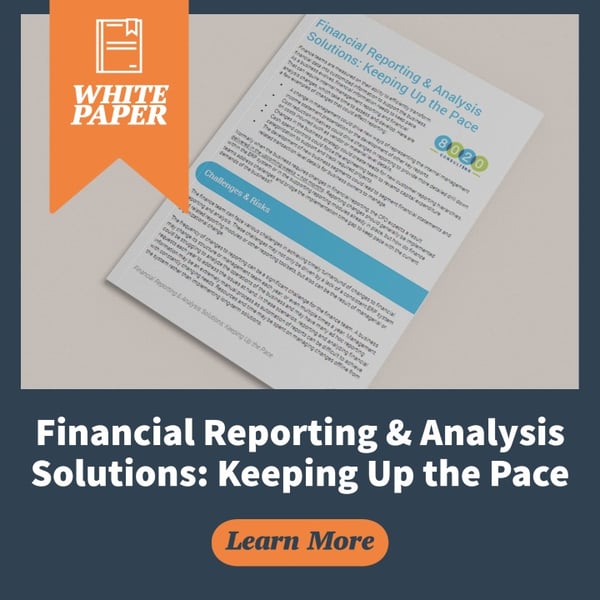As companies prepare for the upcoming earnings season, the overall decline in operational results for many should be no surprise due to COVID-19. Stakeholders should expect the latest public financial reports to contain new disclosures and adjustments related to the current pandemic’s impact on business operations, now and in the foreseeable future. The Division of Corporation Finance has also released guidance on a variety of SEC disclosures that companies should consider due to COVID-19. (There are also helpful checklists from a variety of sources to help ensure all financial reports contain the appropriate risks and disclosures.)
The latest guidance from the Division of Corporate Finance highlights the following SEC disclosures companies should consider for their upcoming filings:
Going Concern
The FASB requires management to evaluate whether conditions or events, considered collectively, raise substantial doubt about the company’s ability to meet its obligations within 12 months after the date that the financial statements are issued. This disclosure is required in the financial statements and MD&A. Management should assess challenges such as outstanding obligations, labor challenges, or work stoppages by taking COVID-19 into account. Any challenges disclosed should be accompanied by a plan and report if any part of the plan has been implemented.
Risk Factors
Management should collaborate with its respective SEC legal counsel to examine the addition or revision to risk factors related to pandemic or disease outbreaks. These risk factors should describe to stakeholders the current impact on business operations and adverse effects in the foreseeable future. Companies should consider disclosing specific risks related to COVID-19 that may be evolved over time such as shelter-in-place orders, supply chain disruptions, or regulatory changes, which could further impact operations, increase liquidity risk and affect capital resources.
Financial Statement Footnotes
Companies should evaluate the material impact on financial statement line items such as leases, debt, commitments and contingencies. Further, evaluation of accounting events triggering inventory write-downs or impairment of goodwill and other intangible assets are needed. In accordance with ASC Topic 275, Risks and Uncertainties, companies are required to disclose entity-specific material risks and uncertainties related to the nature of operations, significant estimates and forecasts. Companies that have received financial assistance through the CARES Act should consider the short- and long-term impact of the assistance and report the related disclosures.
MD&A
This section provides management the opportunity to discuss the current and future financial conditions of the business operations, liquidity, and capital resources. The financial and operating metrics can be modified to illustrate management’s perspective and approach to dealing with COVID-19. It is highly recommended that these modifications be minimal in nature and reasonable in order to avoid scrutiny from the SEC. Management should provide the appropriate disclosure explaining any changes in the calculation method of any metrics due to the pandemic. Companies are required to follow strict guidelines under Item 10 of Regulation S-K[5] and Regulation G[6] with relation to non-GAAP financial presentation. In addition, companies are reminded to follow the Commission’s latest guidance on disclosures related to key performance indicators and metrics. Non-GAAP measures such as EBITDA are more likely to be scrutinized by the SEC. Hence, management should ensure all provisional amounts disclosed are reconciled to the respective GAAP measures.
SEC Disclosures and Other Financial Reporting Support
The SEC recognizes the challenging business environment companies are facing due to COVID-19, and the latest guidance into SEC disclosures allows companies to effectively communicate to stakeholders the current business operations and difficulties faced. This pandemic provides companies the opportunity to review their financials with a fresh set of eyes. If you’d like an experienced consultant to take a closer look at your financial reporting process and suggest improvements, we invite you to explore our financial reporting & accounting services.
You can also download our free whitepaper for insight into speeding up your reporting by clicking the image below.

About the Author
Rathid has over 6 years of accounting and audit experience in multiple industries including financial services, entertainment, fashion, and health & wellness. He began his career at Squar Milner in their Audit practice and later joined the Assurance practice at PwC. Additionally, he was part of the financial reporting team at Caesars Entertainment Corporation. Prior to joining 8020 Consulting, he served as the Manager of Financial Reporting at YogaWorks Inc. His expertise includes financial statement audits, technical accounting, financial reporting (including SEC filings), and corporate consolidation. He is a CPA and holds a Bachelor of Science in Business Administration and a Master of Professional Accountancy.



